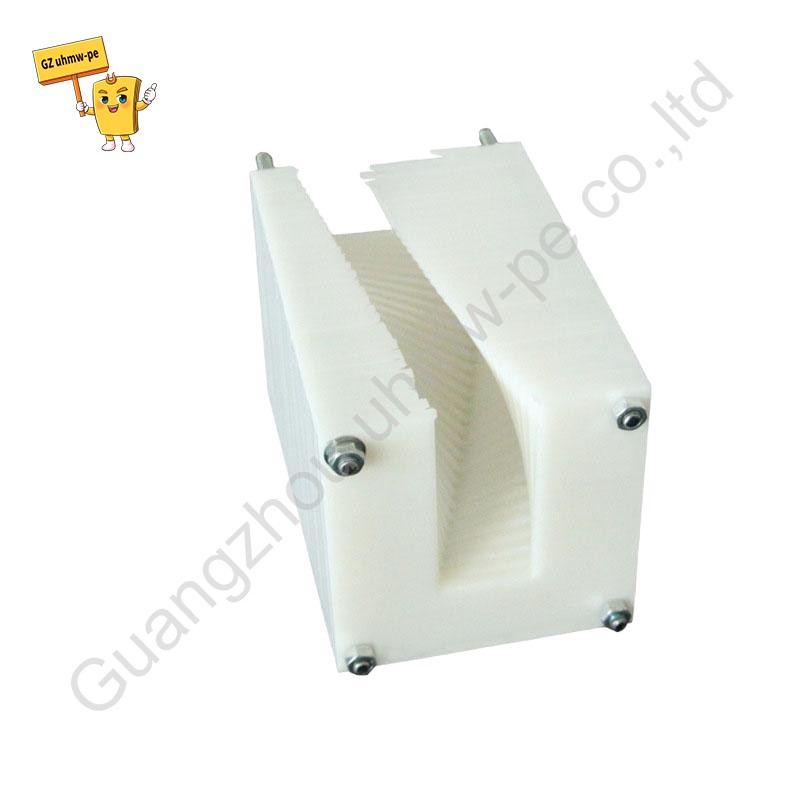[News Update] Recently, a critical technological component for packaging and filling production lines—the ultra-high molecular weight polyethylene bottle turner—is quietly revolutionizing efficiency and safety across beverage, food, and daily chemical industries with its exceptional performance. Through innovative material science applications, this technology has successfully resolved longstanding bottlenecks associated with traditional metal bottle flippers, delivering transformative improvements for high-speed production lines.
Addressing Persistent Challenges: Metal Bottle Flippers Under Pressure
In automated filling production, bottle flippers serve as core components for achieving precise container rotation during critical processes like labeling, coding, and inspection. For years, mainstream products predominantly utilized metal materials. However, metal bottle flippers revealed numerous drawbacks during prolonged use: the friction with glass and plastic bottles generated loud, jarring noise that polluted the work environment; their hard texture easily scratched container surfaces, leading to persistently high product loss rates; and their rapid wear necessitated frequent maintenance and replacement, resulting in continuously accumulating overall costs. These pain points became invisible barriers hindering further improvements in production line efficiency.
Material Science Breaks Through: UHMW-PE Delivers Performance Leap
The emergence of UHMW-PE bottle flippers precisely addresses these challenges. UHMW-PE is an exceptional engineering plastic whose extremely high molecular weight endows it with unparalleled properties:
Exceptional Protective Properties: “Soft Overcomes Hard” – UHMW-PE's toughness and resilience create a “soft contact” with container surfaces, completely eliminating scratches on bottles and inkjet markings. This significantly reduces product damage, making it ideal for high-end glass bottles and easily deformable aluminum cans.
Ultimate wear resistance and self-lubrication: Its wear resistance far surpasses metals, extending service life exponentially. An extremely low friction coefficient ensures containers rotate smoothly and quietly within the spiral chamber, eliminating noise while avoiding contamination risks associated with lubricants. This perfectly aligns with the stringent hygiene requirements of the food and pharmaceutical industries.
Corrosion Resistance and Lightweight Design: The material exhibits inertness to various chemicals and strong corrosion resistance. Its lightweight nature also facilitates easier equipment installation and commissioning, reducing labor intensity for workers.
Ingenious Mechanism for Smooth Rotation
The core of this bottle flipper's design lies in its internal spiral cavity. As containers enter the cavity via the conveyor belt, they are naturally guided and rotated by the spiral track during forward movement. Precisely calculated spiral angles and trajectories enable accurate control of container rotation to 90 degrees, 180 degrees, or any preset angle, ensuring a continuous, smooth, and efficient process.
Widespread Market Adoption with Promising Industry Prospects
This innovative technology has been successfully implemented on production lines at several renowned beverage, beer, and condiment manufacturers, receiving positive feedback. A production line engineer from a major beverage company remarked: “After switching to the UHMW-PE bottle flipper, the most noticeable change is how much quieter the production line has become. Bottle scratches have been virtually eliminated, and maintenance intervals have significantly lengthened. This has greatly contributed to improving our Overall Equipment Effectiveness (OEE).”
Industry experts note that as market demands for production efficiency, product quality, and green manufacturing intensify, the “gentle handling” and “cost-saving efficiency” principles embodied by UHMW-PE bottle turners will become an irreversible trend in packaging machinery. The widespread adoption of this technology signals China's manufacturing sector steadily advancing toward smarter, more refined, and more sustainable practices.



